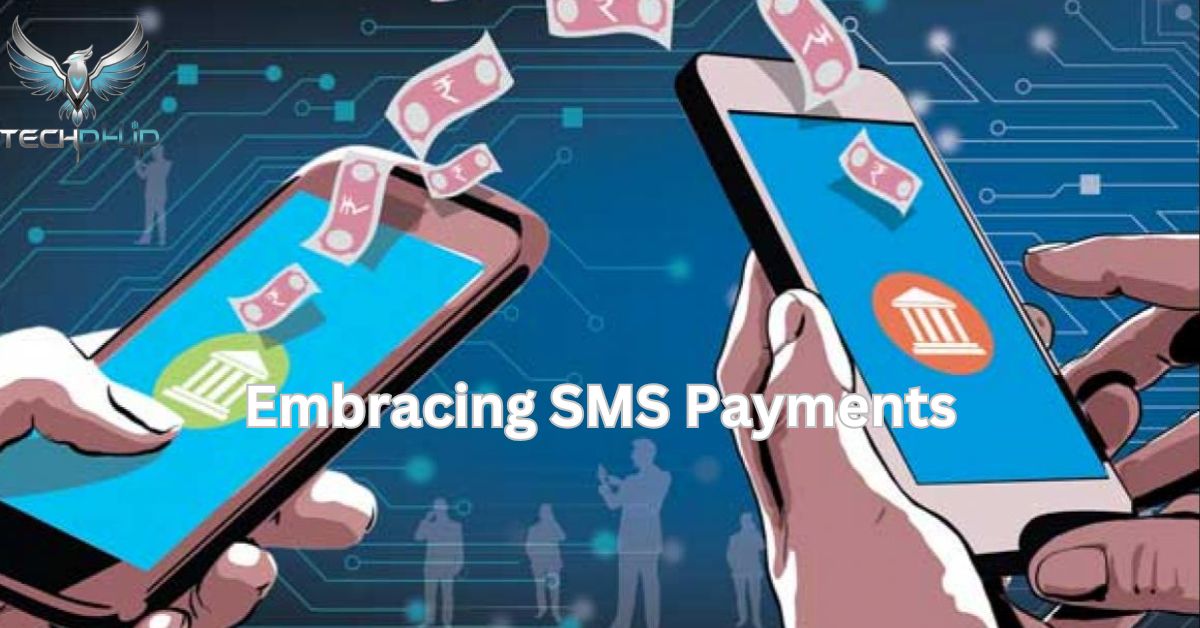The Evolution of Payment Technologies in Small Business
The landscape of small business transactions has undergone a remarkable transformation over the past few decades. From the traditional cash only approach to the current digital revolution, payment methods have Consistently evolved to meet changing consumer needs and technological capabilities.SMS payments represent the latest innovation in this journey ofering a unique blend of accessibility and Convenience that particularly benefits small busineses.
Understanding SMS Payments
SMS payments also known as text to pay Solutions enable customers to complete transactions through simple text messages.This technlogy leverages the ubiquitous nature of mobile phones and the familiarity of text messaging to create a seamles payment experience.Unlike smartphone dependent payment apps SMS payments work on any mobile phone making them accessible to a broader Customer base.
The Strategic Advantages for Small Businesses
Enhanced Customer Convenience
One of the most compelling aspects of SMS payments is the convenience they offer to customers. There’s no need to download additional apps remember complex passwords or navigate through multiple screens.Customers can complete transactions with a few simple text messages making the payment process quick and hassle free.This simplicity often translates to higher customer satisfaction and increased loyalty.
Reduced Operating Costs
For small business owners implementing SMS payment systems can significantly reduce operational expenses.Traditional point of sale systems often require substantial initial investments in hardware and ongoing maintenance costs. In contrast SMS payment solutions typically operate on a more affordable subscription based model making them particularly attractive for businesses with limited resources.
Improved Cash Flow Management
SMS payments facilitate faster transaction processing and settlement times compared to traditional payment methods.This quick turnaround helps small businesses maintain healthy cash flow which is crucial for day to day operations and long-term sustainability.The system also provides real time transaction notifications enabling better financial tracking and management.
Key Comparison Tables for SMS Payments in Small Business
Implementation Costs Comparison
| Component | Traditional POS | SMS Payments | Mobile Apps |
| Initial Hardware Cost | $300-$2000 | $0-$50 | $0 |
| Monthly Fee | $30-$100 | $20-$50 | $25-$75 |
| Transaction Fee | 1.5-3.5% | 1.5-2.5% | 2.0-3.0% |
| Setup Time | 2-3 days | 1-2 hours | 1 day |
| Training Required | Extensive | Minimal | Moderate |
Implementation and Security Considerations
Setting Up SMS Payments
Implementing SMS payment systems requires careful planning and consideration.Small businesses need to partner with reliable payment service providers who offer SMS payment capabilities.The setup process typically involves integrating the payment system with existing business operations training staff and establishing clear procedures for handling transactions and troubleshooting issues.
Security Measures and Compliance
Security remains a top priority in any payment system.SMS payments incorporate various security measures including encryption, two factor authentication, and fraud detection algorithms.Small businesses must ensure their chosen SMS payment solution complies with relevant financial regulations and data protection standards such as PCI DSS compliance for credit card processing.
Risk Management Strategies
While SMS payments offer numerous benefits they also present certain risks that businesses must address.These include potential technical failures communication network issues and the need for backup payment options. Developing comprehensive risk management strategies and maintaining alternative payment methods helps ensure business continuity.
Security Features Comparison
| Security Feature | SMS Payments | Traditional POS | Digital Wallets |
| Encryption | Yes | Yes | Yes |
| Two-Factor Authentication | Yes | Limited | Yes |
| Fraud Detection | Real-time | Delayed | Real-time |
| Transaction Limits | Customizable | Fixed | Customizable |
| Chargeback Protection | Limited | Yes | Yes |
Impact on Business Operations and Growth
Streamlined Business Processes
SMS payments can Significantly streamline business operations by automating payment Collection and reconciliation processes.This automation reduces manual handling of transactions minimizes human errors and frees up staff time for more value adding activities.The systematic approach to payment processing also facilitates better record-keeping and financial reporting.
Expanded Market Reach
The accessibility of SMS payments Can help small businesses reach new customer segments particularly in areas where smartphone penetration is low or internet connectivity is unreliable. This expanded reach Can open up new market opportunities and drive business growth. Additionally the simplicity of SMS payments can make businesses more attractive to Customers who prefer straightforward transaction methods.
Enhanced Customer Relationships
The Implementation of SMS payments creates opportunities for improved customer communication and engagement. Businesses can use the same SMS channel to send payment confirmations, receipts and relevant promotional messages.This integrated approach to customer communication helps build stronger relationships and encourages repeat business.
Future Trends and Developments
Integration with Emerging Technologies
The future of SMS payments lies in their integration with other emerging technologies. Artificial Intelligence and Machine Learning algorithms can enhance fraud detection and provide personalized payment experiences.Integration with blockchain technology could further improve security and transaction transparency.
Evolution of Customer Preferences
As customer preferences continue to evolve SMS payments are likely to adapt and incorporate new features.This might include enhanced customization options improved integration with loyalty programs and more sophisticated analytics capabilities to help businesses better understand customer behavior and preferences.
Regulatory Landscape
The regulatory environment surrounding digital payments continues to evolve with new guidelines and requirements emerging regularly.Small businesses must stay informed about these Changes and ensure their SMS payment systems remain compliant with current regulations.
Business Benefits Analysis
| Benefit Category | Impact Level | Implementation Effort | ROI Timeline |
| Customer Convenience | High | Low | 1-3 months |
| Operating Costs | Medium | Low | 2-4 months |
| Cash Flow | High | Medium | 1-2 months |
| Market Reach | Medium | Low | 3-6 months |
| Customer Data Collection | High | Low | 2-3 months |
Challenges and Solutions
Technical Infrastructure Requirements
While SMS payments require minimal infrastructure compared to other digital payment solutions businesses still need reliable mobile network coverage and basic technical capabilities. Investing in backup systems and maintaining alternative payment methods can help address potential technical Challenges.
User Education and Adoption
Some customers may initially be hesitant to use SMS payments due to unfamiliarity or security concerns.Small businesses can overcome this Challenge through clear communication about the benefits and security features of SMS payments along with providing simple instructions and support for first time users.
Competition from Other Payment Methods
SMS payments face competition from various Other digital payment solutions including mobile wallets and contactless payments. However their unique advantages of simplicity and accessibility continue to make them a valuable option particularly for small businesses serving diverse customer segments.
Recommendations for Small Business Owners
Assessment and Planning
Before Implementing SMS payments small business owners should carefully assess their specific needs and capabilities.This includes evaluating current payment processes understanding customer preferences and determining the potential return on investment from implementing SMS payments.
Choosing the Right Provider
Selecting an appropriate SMS payment provider is Crucial for success. Businesses should consider factors such as transaction fees security features customer support and integration Capabilities when choosing a provider.It’s also important to review the provider’s track record and reliability.
Implementation Strategy
A Phased implementation approach often works best alowing businesses to test the system with a smaller customer Group before rolling it out more broadly.This approach helps identify and address any issues early while minimizing disruption to existing operations.
Conclusion
The adoption of SMS payments represents a significant opportunity for small businesses to modernize their payment processes and improve customer service. While challenges exist the benefits of enhanced convenience reduced costs and improved operational efficiency make SMS payments an attractive option for many small businesses. As technology continues to evolve and customer preferences shift toward digital solutions SMS payments are likely to play an increasingly important role in the future of small business transactions.
The key to success lies in careful planning choosing the right payment solution provider and maintaining a balanced approach that considers both business needs and customer preferences. By embracing SMS payments while addressing potential challenges proactively small businesses can position themselves for success in an increasingly digital marketplace.











